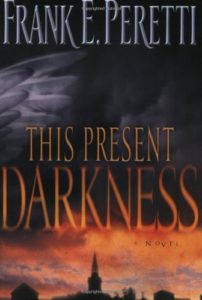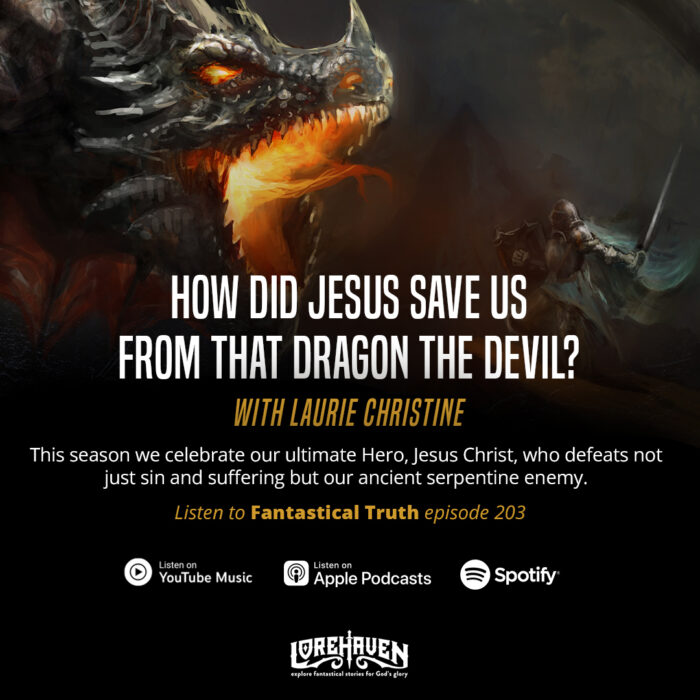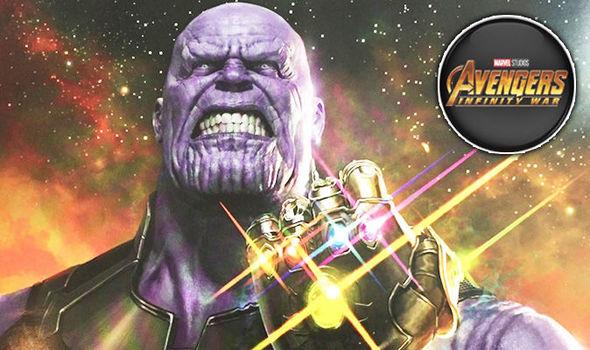Have Comic Books Taken Over Speculative Fiction?
Much of the buzz today is about the latest Avengers movie, Infinity War, which scored a big weekend success at the box office. This film is just the latest blockbuster in a line of movie representation of a character and/or story that first appeared in a comic book. So have comic books taken over? Are people more interested in superheroes with super powers than with The Federation of Planets or Middle Earth?
In some ways, as expected, movies follow the reading tastes of the culture. Comic books, with manga leading the way, had a resurgence in the 1990s, so movies made from comic books sees like a natural follow. Consequently in the first years of this new century, the number of superhero films grew:
the first decade of the 21st century brought increased interest in the genre and some of the most profitable superhero franchises, many from Marvel Enterprises. . . . 20th Century Fox’s X-Men (2000 onward) became a film franchise by its surprise hit, . . . Later, one of the largest blockbusters of all time was released with Sam Raimi’s Spider-Man (2002). With high ticket and DVD sales, several new superhero films were released every year in the 2000s, including Daredevil (2003), The League of Extraordinary Gentlemen (2003), Hulk (2003), Catwoman (2004), Hellboy (2004), The Punisher (2004), the semi-animated Sky Captain and the World of Tomorrow (2004), Batman Begins (2005), Man-Thing (2005), Fantastic Four (2005), Ghost Rider (2007), Iron Man (2008), The Incredible Hulk (2008), and Watchmen (2009).
Sequels and spin-offs and remakes abound, and we aren’t finished with this decade yet. There’s no sign of the superhero craze slowing.
I’ll be honest here. I’m trying to understand the love for these stories because I have not been caught up in the craze. I didn’t read the comic books and I really don’t care if I see the movies. They all seem to blend together—superhero faces insurmountable odds with the world at risk, uses his superhero power, and saves the day. Sure, some have become more sophisticated and have explored the character in more depth, and I suppose, like anything, putting out more superhero movies means that the producers are getting better at them.
 But what about the great movies made from great books? After Lord of the Rings and Harry Potter, where do we go? I mean, the effort to capture the seven Narnia stories met with little success and a good deal of criticism. Fantastic Beasts and Where to Find Them by J. K. Rowling seems to have been largely ignored, though it is a stellar movie.
But what about the great movies made from great books? After Lord of the Rings and Harry Potter, where do we go? I mean, the effort to capture the seven Narnia stories met with little success and a good deal of criticism. Fantastic Beasts and Where to Find Them by J. K. Rowling seems to have been largely ignored, though it is a stellar movie.
The non-comic book speculative movies that seem to have found good success are animation or fairy-tale retellings.
Last year the fantasy movies included another Beauty and the Beast, another King Arthur, another Kong, another Pirates of the Caribbean. Have we no new material to draw from? Or have our tastes in movies devolved to the level of shoot-’em-up-blow-’em-up adventure? Are there no more good books or good screenplays out there? Or do audiences simply prefer superhero stories? And if the latter, why?
From where I sit, not having a superhero reading history, only going to some of the movies on a hit-and-miss basis, and forgetting which ones I’ve seen because they simply don’t make a big impression on me, I have to wonder if people like these movies primarily because they do NOT say anything particular about society (and therefore are not in danger of offending anyone), other than that the world needs to be saved and only superpowers can provide the secret to overcome insurmountable problems, usually stemming from someone who is greedy or power hungry or cruel or vengeful—usually a mix of those.
Am I being too simplistic in my summation of superhero movies? Perhaps, but the number of them does have me wondering where speculative fiction is going. I tend to think that movies drive books today as much as reading drives movies. So I expect that some superhero movies will result in an uptick of superhero type books or anime or comic books.
 Will Christian speculative fiction follow?
Will Christian speculative fiction follow?
From my limited perspective I run across more supernatural stories than I would think the market could sustain. I mean, how many stories about angels and demons are we open to? Or are angels the Christian version of superheroes (which is a sad and dangerous thought, in my opinion)?
So where do you think speculative fiction will go from here, in print and on the screen? Do you think superhero stories have more substance to them than what I see? Why are they so popular? I’m looking forward to hearing your perspective.








































Much of the reason these things blend together and don’t seem as exciting is because people are focusing on the mainstream stuff or even just classic superhero comics, which seem to follow a very similar formula almost no matter what. Anime, manga, and indie comics tend to do a far better job of making things unique and exciting. Obviously there are still plenty of tropes in those mediums, but if you’re willing to dig, you’ll find something you like eventually.
Formula! That’s the word I should have used. Yes, that’s what I see in the movies. It’s good to know there is more out there, but like the good books, I wonder why movie makers are tying us to the formula. Is that what we want as a society? Thanks for your input, Autumn.
Becky
You’re welcome 🙂 And I bet the formula thing partially comes from not knowing much else, along with the fact that movies and comics are expensive to make, so maybe people aren’t willing to risk trying something completely new if they aren’t sure it’s going to work.
Well, comic books in the mainstream are lamentably formulaic and also suffer from the same deficiency as other genres that have decided to “push the boundaries” on sexual exploitation, graphic violence and plumbing the more wretched depths of human depravity: Namely, what was “cutting edge-transgressive” yesterday is ho-hum today, so we need an even more exploitative, graphic, depraved or just plain bombastic plots, heroes and villains today. Smart stories can get told with the genre, but they seem to have hit their apex with the Nolan Batman movies, Raimi’s Spider-Man movies and maybe Iron Man I and Captain America: The First Avenger. With teams it’s even more of a problem because the writers have to come up with more and more ways to dazzle the audiences with feats of super-strength, speed, energy-casting, etc. Only, there is a limited number of ways to dazzle people by depicting these things. It is already getting old and the biggest weakness of the Avengers films since the first one has been exactly that: Ten minutes of fighting murderous alien cyber-mercenaries can keep the audience’s attention, but 20? Not really. It starts to feel like padding. Probably because it is padding.
Hi Rebecca. I really disagree with you about superhero stories in terms of them “not saying anything about society.” They in fact DO say very much about society, though they say it in a way that is embedded in the background more than out front in the story.
However, I don’t think the “message” of superhero stories (which I believe is really there) is why they are popular. Whatever message they have is a refection of the worldview of the writers and is not what the story is ultimately about. A superhero story is about spectacle to a degree and always was–that’s why superhero uniforms were traditionally brightly colored, why the hero soars through the air as mere mortals merely dream of doing. When superhero stories kicked off, comic drawings could show action that no one could see in the real world. Comic book lovers were drawn to these action scenes, though I would say they stayed because they came to love the characters and empathized with the characters’ struggles, including the fundamental struggle between good and evil.
Modern movies take the spectacle part of the comic book story and enhance it to a degree far beyond what was ever possible with mere pen-and-ink drawings. Audiences are draw in, in part, to see other worlds, massive explosions, heroes flying through the air, etc. etc.–this kind of spectacle appeals to nearly everyone to some degree or other. This is part of why these movies are so popular.
But only part–characters that are likable, whose struggles the audience can identify with, characters that are understandable and with whom the audience can identify with (and more importantly, wish to BECOME), keeps people coming back to superhero stories.
I’ve just seen Infinity War and believe I will write my next post here to talk about the worldview embedded in the story. Which is a worldview that I happen to sharply disagree with, as I’ll attempt to explain…
Thanks for that, Travis. I understand that it’s hard for people who’ve never really been interested in comic books or superheroes to understand the appeal, but that doesn’t mean they have nothing meaningful to say — like every other kind of story, they can be told in a way that is silly or serious, they can uphold truth or subvert it, they can be escapist fantasies or thought-provoking parables. And I wholly agree that it’s the characters, not merely the desire to see people wielding superhuman powers or fighting aliens, that keep fans coming back for more. I couldn’t care less about battle scenes for their own sake, but I care about what happens to the heroes involved in them, and I care about who wins in the end.
I personally was pleasantly surprised by how much I liked INFINITY WAR. Not that it’s an easy or uplifting movie to watch, but I thought it did a good job of showing how every life has value and that the ends do not justify the means — no matter how noble and altruistic we (or Thanos in this case) may believe the ends to be.
Of course, it helps to know that the ending of the first movie is by no means the same as the ending of the whole story — a truth that a surprising number of moviegoers seem to have forgotten. Whether you divide a story in half or in thirds, you get the darkest point somewhere in the middle, and that’s as true of Infinity War as it was of The Last Jedi. So while it’s certainly legitimate to criticize aspects of the filmmaking or storytelling that we might think were poorly executed, judging the actual message of a story at the halfway point or talking as though we already know the resolution can be premature, to say the least.
At least one recent superhero movie (Wonder Woman), actually dealt with the fact that defeating the Big Bad doesn’t fix everything, because people make their own problems. But making interesting villains in this genre can be difficult.
I don’t think we need worry about a surge of superhero books drowning the speculative fiction market, for the simple reason that it’s already been tried and failed. There was a surge of superhero novels in MG, YA and adult fiction about five years ago, no doubt inspired by the huge popularity of the early Marvel movies — and very few of those books found the audience publishers were hoping for. They certainly didn’t become a juggernaut trend the way paranormal romance did after TWILIGHT, or dystopian fiction did after THE HUNGER GAMES. So if you try to sell a superhero novel to an agent or editor now, they’re more likely to be skeptical than excited — unless there’s some really original twist on the concept that makes it different from what we’re seeing on TV and in the movies.
I think the reason superhero novels struggle to find an audience compared to comic books and movies is because it’s hard to vividly depict comic-style superpowers in prose, especially if there are multiple heroes and villains involved. There has to be a lot more to the story than just “BAM!” and “POW!” to hold the reader, because reading takes mental effort in a way that watching movies or even reading comics (much as I enjoy both) does not.
I remember making the comment back in my youth (about 30 years ago) that we wouldn’t have really good comic-book movies (‘good’ to the majority of comic-book fans) until we had a generation of filmmakers who had grown up immersed in comic-book culture as well as being professional movie makers (not to mention the SFX technology necessary to make it look decent).
There are many distinctions to be made between comic books (and their somewhat pretentious brethren, graphic novels) and classic literature such as LotR or Narnia. The most relevant to this article, I think, is that classic literature is strictly defined; that is, there is an established ‘canon’ that everyone knows (or can look up), and it has been around long enough that fans (at least until the recent movies came out) had only occasional illustrations to go by as far as visuals. They (or I should say we) have long-established ideas of how these things should look and feel. I, for example, enjoyed the LotR and Narnia films, but there was this little corner of my mind that occasionally would say things like ‘Radagast doesn’t look like that!’ (And don’t get me started on the Hobbit films…)
With comic books, however, ‘canon’ is much more flexible. While publishers have occasionally gone through labors and gyrations to define and re-define ‘canon,’ the fact is there are many versions of most of the major characters – not only in past issues, but in various ‘alternate world’ publications featuring the title character in different situations. I have a friend who quit collecting Spider-Man, for example, when Marvel was publishing three different mainstream series (not ‘alternate world,’ but all supposedly canon) at the same time. Also, many different artists even within a single title have presented various images of the characters. So comic-books are much less defined than classic literature, by the deliberate design of the writers and publishers; there is no reliable and immutable version of Superman or Magneto the way there is of Lucy Pevensie or Galadriel – even with the Marvel cineverse, we have three or four different versions of Spider-Man! Comic-book fans, as virulent as some of their arguments can be, aren’t about holding films to a single known standard, but comparing films as just another version alongside with several others, to be compared and contrasted and debated.
Comic books have a natural synergy with Hollywood: both are media of visuals and script, both have a mindset of creativity over consistency (Hollywood has always been notorious for mangling literature, from the silent era on), and both work very hard at trying to simultaneously be ‘relevant’ and strive for the broadest appeal possible.